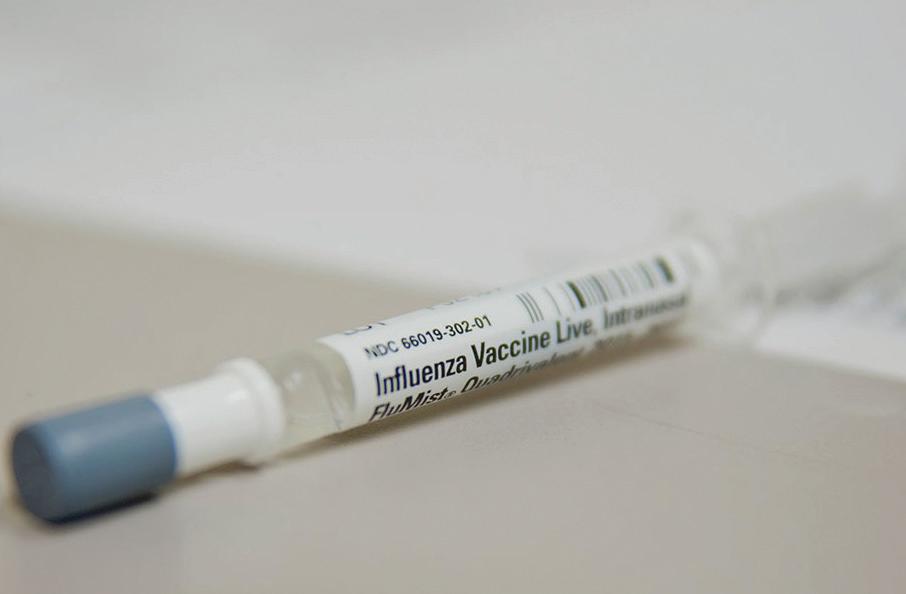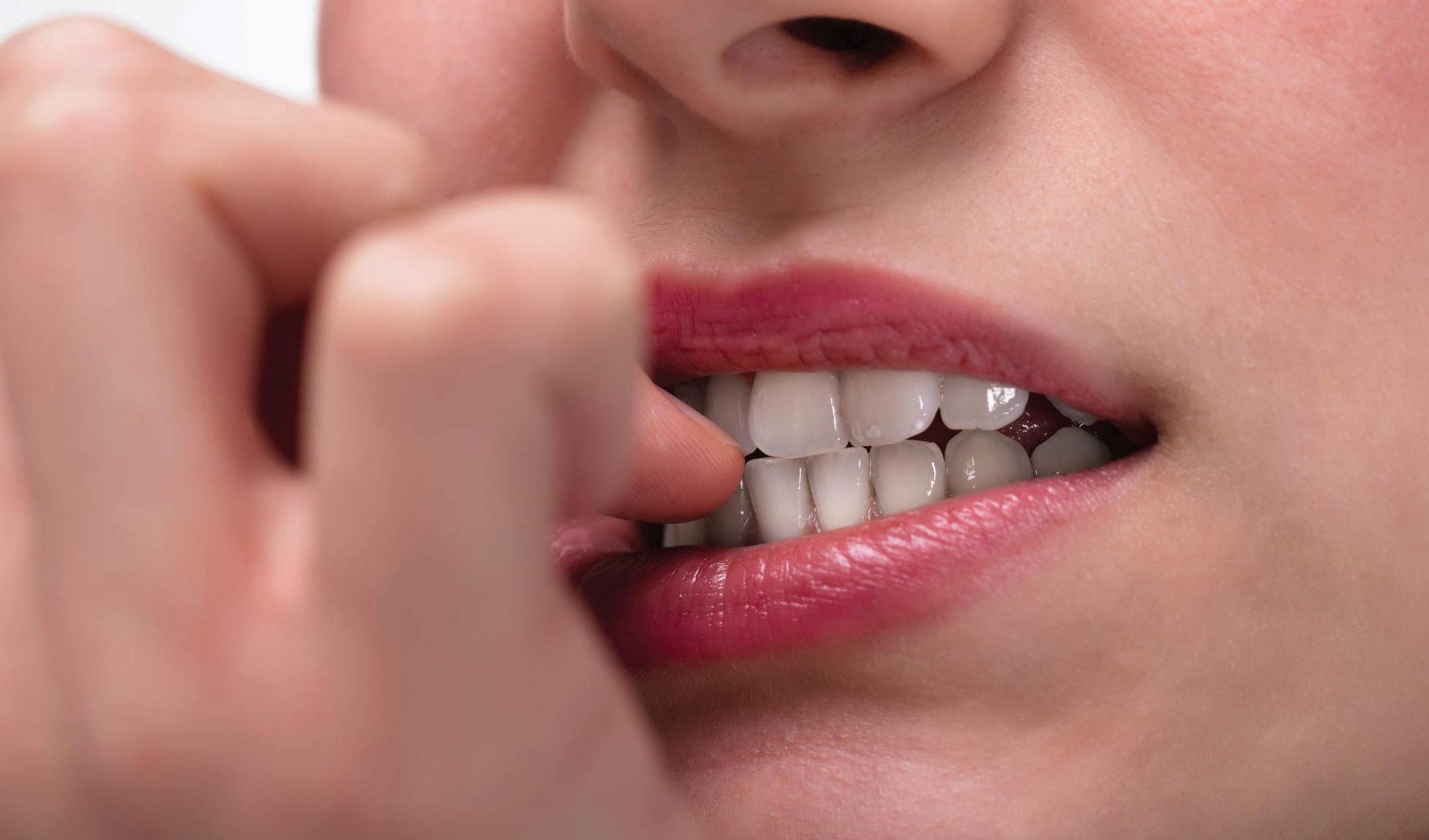
5 minute read
Glutinous rice balls eaten during the Chinese festival Dongzhi
from The Hype Issue 6
Béibhinn Thorsch tells us who should be getting the flu vaccine
this winter season and why
Advertisement
While there are far more pressing health issues and life concerns than the flu vaccine, many people may be surprised to learn how the vaccine affects - and how it can help them.
While most will only need one dose of the vaccine, the HSE recommends that children between six months and 9 years of age receive two doses (spaced four weeks apart) if they are receiving the vaccine for the first time. Some others who have experienced a range of health issues may be required to take different doses after this time, including cancer patients who receive the vaccine while on chemotherapy.
The seasonal flu is a very infectious illness caused by the influenza virus, which infects airways and lungs. It can be life-threatening, especially as it is seen as unpredictable. It can cause serious complications such as bronchitis and pneumonia, and some people are more at risk of these types of complications developing and therefore are required to take the flu vaccine.
This group includes those aged 65 or older, pregnant women, and people with underlying health conditions. Diabetes chronic heart/liver/ kidney/lung diseases or neurological diseases, as well as those who are obese, are only some of those recommended to get the vaccine.
Symptoms come on suddenly, usually including fever, muscle aches, headaches, and extreme tiredness. It is much stronger than a cold, which comparatively comes on more gradually.
Each year the flu viruses change and this is why a new vaccine is needed every year. In the year 2019/20, the flu vaccine is designed to protect against four different strains of the flu virus currently circulating. This is a new high, as previous vaccines used protected against 3 strains of the virus.
The vaccine works by producing antibodies to fight the virus, so that if you happen to come in contact with it then the antibodies attack the virus and stop you from getting sick. Adverse reactions are generally mild, and the vaccine cannot give you the flu itself as there is no live virus within it.
If you have experienced a severe allergic reaction to a previous dose of the vaccine or any part of the vaccine, or those taking medicines called “combination checkpoint inhibitors” should not take the vaccine. If you are ill with a temperature of more than 38 degrees then the vaccination should be delayed and taken instead at a later date.
The flu season starts at the beginning of October and lasts until the end of April, during which time it is possible to get the vaccine from either your GP
or a pharmacist. The vaccine is free even without a medical card, however you may be charged for a consultation fee. The vaccine begins working within 2 weeks of getting it, with the most common side effects being some soreness and red swelling where the injection was given, as well as aches and tiredness.
he HSE website outlines any possible concerns you may have regarding the flu vaccine, including if it contains gelatin (it does not), certain ingredients that may cause allergic reactions, and the manufacturer of the vaccine.
To avoid the risks associated with getting the flu, it is best to protect yourself no matter what. If you can find the time in the busy end-of-semester season, consult your pharmacist or GP about getting the flu vaccine as quickly and painlessly as possible!
Skin picking and nail biting: how to overcome this
symptom of anxiety
Maria Voznuka gives us some tips on how to tackle this debilitating
Anxiety can show itself in many different forms. A very common way that people with anxiety deal with it is through picking at the skin around their fingernails. While it can be a somewhat effective short-term stress reliever, it can unfortunately get quite unsightly, as well as just painful.
According to the NHS, dermatillomania (commonly known as the skin-picking or excoriation disorder) is a condition where the person in question has constant urges to pick at their skin because of stress and/ or general anxiety. While this article will cover some basic steps you can take to overcome this condition, it is important to note that some people may need to seek treatment from a mental health professional or a GP. However, here are some small steps one can take to distract themselves from picking at their skin.
If possible, and if you are into them, get acrylic or gel nail extensions to help with the picking. This has been known to help people a lot because not only does it makes your hands look generally better, it distracts you from previous injuries. This gives your hands time to heal.
It is a good idea to keep an elastic band or a hair tie around your wrist and use it as a distraction for whenever you feel the urge to pick at your skin. Mess around with it instead of picking at your skin when you feel more anxious. In this way, you are not hurting yourself in the process and you still have something to help you cope with the stress.
Ask some close friends to keep a close eye on your tendencies if possible and ask them to call you out if you do start picking at your skin. This will eventually help you become more conscious of your behaviours, and it helps to know that somebody else is aware of what you are doing, so psychologically you will be less inclined to do it. Start with allowing yourself to pick only a few times a day and cut back every so often. Perhaps reward yourself with something nice after each successful day. However, it is important to know and accept that backslides are common. Don’t feel down if you don’t succeed sometimes. It is completely normal and baby steps are important. If you are at home and suddenly feel the urge to pick at your skin again, distract yourself by doing some household chores. Put away some laundry, sweep the floor, do those dishes. Not only does this distract you from the habit, it also makes you more productive and you will feel a lot better about yourself after this.
These are some very basic ideas to stop you from picking at your skin, but as said previously, it is important to talk to a professional if your anxiety and the habits that come with it are too extreme to handle alone.











